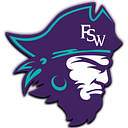OERs Create More Affordable Courses for FSW Students
As we continue our focus on Affordable Education this month, FSW librarian Arenthia Herren shares how FSW faculty can use Open Educational Resources (OERs) to improve the affordability of their courses for students. Arenthia has been a librarian at FSW since 2011. She is Creative Commons Certified and has a certificate in OER Librarianship. Along with her involvement with OER at FSW and the state of FL, Arenthia serves as the liaison librarian for the School of Arts, Humanities, and Social Sciences and is the lead librarian for the CREATIVE Capstone. She also teaches Art History and Art Appreciation.
What are Open Educational Resources (OER), and why should FSW faculty consider adopting them for their classes?
An OER can be anything from a textbook to a quiz to a learning module. The key aspect of an OER is that it is published under a Creative Commons License which allows the user to retain, reuse, revise, or redistribute the resource depending on the specific licensing attached to it. In a nutshell it allows for more freedom of use than traditionally copyrighted materials. Faculty should consider adopting OER because most OER are digital which means that students have access to their course materials on the first day of class. Additionally, OER can offer different perspectives than what is often captured in traditional textbooks. The ability to revise OER means that faculty can make course materials that are more directly applicable to their students’ context and learning needs.
How can using OER materials benefit FSW students, particularly in terms of affordability?
Most OER are available to students at no cost which represents a huge cost-savings for our students. For example, when ARH 1000 Art Appreciation transitioned to a free OER textbook, students saved $200. Having a zero-textbook cost pathway through the A.A. degree is one of our long-term goals for affordability at FSW.
What are some challenges faculty might face when transitioning to OER materials, and how can they overcome them?
One of the biggest challenges that faculty often face when transitioning to OER is that they miss the publisher provided ancillary materials like test banks and lectures. The good news is that many of the more popular OER textbook platforms like OpenStax have ancillary materials created by other faculty using the same books.
How have you seen the use of OER impact student learning and engagement in courses at FSW?
That’s a great question that we’re still investigating! I’m currently working with the American Association of Colleges and Universities (AAC&U) on a grant exploring the efficacy of OER on student success rates and DFW rates so keep a watch for those results! I know anecdotally from FSW students that they enjoy having access to their books on the first day of classes, and that their course materials are more targeted to their courses and of course they really appreciate the cost-savings.
What resources or support does FSW offer to help faculty explore and implement OER in their curriculum?
We are members of the Open Education Network which gives us access to some professional development opportunities with OER. The FLVC Open FL initiative also holds regular OER trainings, information sessions, and hosts a virtual OER Summit every year. DEV 101 offers a module on OER and Copyright and the OER Explorer which is a self-paced, asynchronous online learning resource tailored for faculty members eager to explore and implement Open Educational Resources (OER) in their teaching practices. You can find both of these professional development opportunities through the Center for Teaching and Learning Excellence. Finally, the FSW libraries are happy to help you navigate the transition to OER. We also have a resource guide: Open Educational Resources
